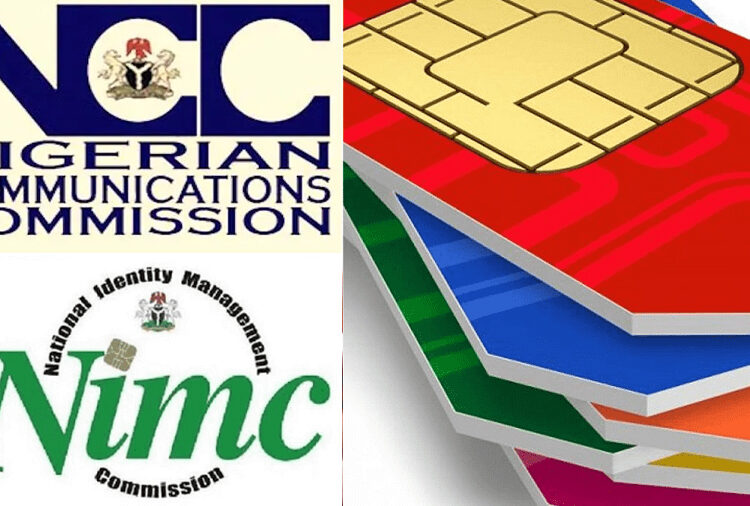The Nigerian Communications Commission (NCC) has once again extended the deadline for disconnecting unlinked SIM cards from April 15, 2024, to July 31, 2024. This extension applies to subscribers with up to four SIMs linked to a single NIN but whose validation is still pending.
Since the launch of the NIN-SIM linkage exercise in December 2020, the federal government has promoted the initiative as a tool to address insecurity by aiding the tracking of criminals. By February 28, 2024, the NCC reported that 40 million unlinked lines had already been barred, leaving 224.7 million active mobile lines in the country, while the National Identity Management Commission (NIMC) claims to have issued 104 million NINs.
The linkage process involves validating a subscriber’s NIN with the NIMC database and matching it with SIM registration information for proper identification. While this policy was envisioned to enhance security, concerns have grown over its effectiveness. Criminals appear to be exploiting the system, and insecurity continues to worsen.
Kidnapping remains rampant, with over 380 people abducted between December 1, 2023, and January 3, 2024. In many cases, security agencies have been unable to trace kidnappers, even when ransom calls are made using registered numbers. Although there have been isolated successes where the NIN-SIM linkage helped law enforcement track and apprehend perpetrators, these instances are rare.
This situation raises questions about the allocation of resources to security. In 2024, the federal government allocated ₦3.25 trillion, or 12% of the ₦27 trillion budget, to defence and security, following a ₦1.55 trillion defence budget in 2023. Despite these investments, the police frequently cite a lack of functional tracking devices as a key limitation in their efforts to combat crime. Reports suggest that essential tracking equipment has been inactive for months, even as violent crimes persist.
The continued inadequacy of intelligence gathering and operational capabilities underscores the need for urgent action. Security agencies must strengthen collaboration with telecom service providers to ensure calls made by criminals are swiftly tracked. This process should not be overly complex, as network providers already have the technological capacity to pinpoint call locations.
It is critical for security agencies to modernize their tools, enhance intelligence gathering, and adopt a more proactive approach to neutralizing criminal activities. With the full implementation of the NIN-SIM policy, Nigerians expect a more effective system capable of addressing the insecurity that has plagued the country for years. The government and relevant agencies must ensure that the investments in security infrastructure translate into tangible results that restore public confidence and safety.




